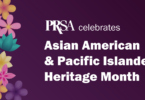Editor’s Note: Lynn Appelbaum is presenting Tiptoeing the Talk: How we are REALLY doing with Diversity and Inclusion at the PRSA 2015 International Conference on Monday, Nov. 9, 10:15–11:15 a.m. The following is a guest post previewing her session.*
While the PR industry is taking steps to make diversity and inclusion more central to our business staffing, we remain far short of our goals. Many continue to offer tired justifications, such as: “We can’t find competitive talent,” or, “PR is a sink or swim industry that not everyone is cut out for.” But these excuses don’t move the conversation or the results forward.
Our panel “Tiptoeing the Talk,” presents a candid look beyond the “talk” about current PR diversity initiatives by providing provocative insights of practitioners and management about the barriers to diversity and steps to help us do better. This panel will guide practitioners and agency leaders to improve our “walk.”
The findings of three studies commissioned by the PRSA Foundation present a continuum of perceptions about diversity starting with entry- level Black and Hispanic practitioners (City College of New York study), through middle management perceptions of Black, Hispanic, Asian, and LGBT practitioners (University of San Francisco study), to how senior leaders of the Page Society assess our progress with diversity and suggest best practices (Syracuse University study).
The gap in perception between employers (those in hiring for senior posts) and the multicultural and LGBT practitioners who are in the early or mid-career trenches offers some startling and valuable perspectives on ways we can do better. Significantly, the findings of all three studies taken together reinforce and support each other.
The panel, comprised of myself, Hua Jiang, Assistant Professor, Syracuse University, and Richard Waters, Associate Professor, University of San Francisco, takes a deep dive into important touchpoints in the diversity and inclusion arena.
Recruitment: The good news is that all three studies reveal that our industry has ramped up initiatives to recruit a more diverse workforce. This is evident in many business efforts to connect with PR programs to identify talented multicultural students from Historically Black Colleges and Universities (HBCU’s) and with other programs, such as those run by the LAGRANT Foundation and the PRSA Foundation. While it’s not yet time to pat ourselves on the back for a job well done to boost inclusivity in PR, there is a sense (and some evidence) that many in our industry are, in fact, doing more than just talking about diversity. They have invested time and commitment to be more inclusive at the entry level.
Retention: When our research started to look at retention, this is where the issue of inclusion gets interesting, and where we should consider refocusing our energies. Translation: we are doing more talking than walking. Not surprisingly, senior management and employers who hire multicultural practitioners think we are doing a much better job at retention than do the multicultural pros coming up through the ranks. This disconnect appears to be one of the core reasons why we aren’t seeing more multicultural (and LGBT) professionals in more senior levels, a sore point for our industry.
Our discussion will highlight some of the findings about practitioner experience in the workplace from their perspective of their job duties and accounts, but more importantly, we’ll also look more deeply into the daily experience and interactions in the workplace environment that may be counterproductive to helping us to retain talented pros.
Insights: Our session does not promise any “easy fixes” or singular path to success. Issues of race and bias in our society are pervasive. They are challenging for the PR profession as well as for other industries. Despite challenges, there are important reasons to build on our efforts to be more inclusive.
Research findings, respondent anecdotes and other feedback suggest that the daily workplace experience of practitioners, coupled with their ability to successfully mentored, can have a profound impact on retention success. We plan to engage in a candid discussion that will provide new insights into this issue and into ways we can do better. And we’ll offer ideas and ways to approach a complex issue to help us all “do the walk” better.
Findings of all three studies will be posted by conference on the PRSA Foundation site at prsafoundation.org.
Lynn Appelbaum has been a public relations professional and educator for more than 30 years working in both the public and private sectors in media relations, strategic planning and communications. Lynn joined the City College of New York faculty in 1993, where she is professor and director of the Advertising/PR program. Lynn is an active proponent of diversity in public relations through her PRSA national, Foundation and chapter service, and through her research on the experiences of multicultural practitioners in the workplace.







